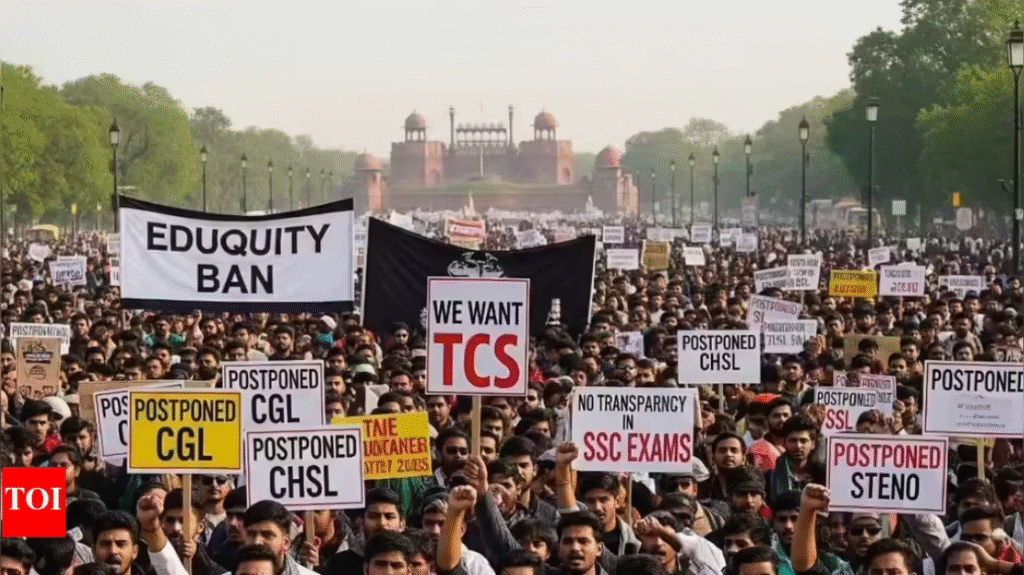In a major development today, Samir Modi, Managing Director of Modicare and brother of fugitive businessman Lalit Modi, was arrested by Delhi Police under serious rape charges. The arrest came at Indira Gandhi International Airport as Samir Modi was attempting to board a flight, following an FIR registered earlier in September. The case has quickly become a public spectacle due to Samir Modi’s considerable business profile, ongoing inheritance disputes with his mother Bina Modi, and the public’s demand for transparency in sexual assault cases involving influential individuals.
Who Is Samir Modi: Business, Family & Background
- Samir Modi, aged about 55, is the Managing Director of Modicare, a company in direct selling and lifestyle products. He comes from the prominent Modi business family; his father, KK Modi, was a notable industrialist.
- He is brother to Lalit Modi, former IPL chair and controversial figure, currently a fugitive. Family dynamics have been in public view over inheritance and control of business assets. Samir has been involved in legal battles with his mother Bina Modi over the distribution of an estimated ₹11,000-crore estate.
- Previous controversies include a defamation case: independent directors of Godfrey Phillips India had filed defamation proceedings against him. Samir Modi had also sought police protection in earlier times citing threats within the family.
What Are the Charges? What We Know So Far
- On September 10, 2025, an FIR was lodged at New Friends Colony Police Station in New Delhi. The complaint is alleged to have been filed by a former live-in partner.
- Charges registered against Samir Modi include rape (Section 376 of IPC) and criminal intimidation (Section 506 IPC).
- The complaint is said to have been filed some years back; investigation had been ongoing. The exact date of the alleged incident is not fully confirmed in public sources, but the case is old (2019-2024 range).
- He was arrested at the Delhi airport when trying to board a flight.
Legal Implications & Process
FIR & Investigation
- A complaint (by the woman) led to registration of FIR under Sections 376 and 506 IPC. Section 376 deals with rape, punishable with rigorous imprisonment; Section 506 covers criminal intimidation.
- Investigation will include gathering of evidence: statements, medical reports, forensic if applicable, digital communication, possibly CCTV footage. Since claim is from past years, possibility of evidence being lost / unavailable exists.
Arrest, Bail & Custody
- Samir Modi was remanded to judicial custody; he is expected to appear in court in the coming days.
- Bail proceedings may consider several factors: severity of crime, whether delay in complaint, possibility of witness tampering, whether accused is likely to flee, etc. Given his profile and attempt to leave via airport, those factors may weigh.
Legal Protections & Rights
- Even though the charges are serious, legally, Samir Modi has rights: the presumption of innocence until proven guilty; right to legal counsel; confidentiality of complainant; due process.
- Under IPC & Criminal Procedure Code (CrPC), rape cases have special protections: the identity of victim must be protected; certain procedures for investigation( medical examination, support) must be followed.
Broader Context & Public Interest
- The case adds to public discourse on how people in positions of power are held accountable. Influential personalities often face allegations, and outcomes are scrutinized heavily.
- It also occurs alongside inheritance disputes within Modi family, which may intensify public perception of his character and credibility. The inheritance dispute concerns alleged mismanagement of trust deed by his mother following KK Modi’s death.
- The delay between alleged incident and FIR could bring up issues around statute of limitations, evidentiary challenges, fairness, and whether complainants are discouraged from coming forward earlier.
Relevant Law & Legal Sections
- IPC Section 376: Defines rape and lays down punishment. Recent amendments have expanded punishments and streamlined procedures to protect victims.
- IPC Section 506: Deals with criminal intimidation, which if found, is punishable depending on severity.
- Code of Criminal Procedure (CrPC): Governs how FIRs are registered, how investigation must proceed, complainant’s rights, medical‐legal examination, bail etc.
- Sexual Harassment / Women Protection Laws: Even though this is rape, other legal protections for survivors & complainants apply (rights to medical help, counseling, privacy, etc.).
Challenges & Legal Issues That May Arise
- Delay in Complaint: Since the complaint is said to be old, defence may argue that delay could lead to false allegations or memory gaps. Prosecution needs strong supporting documentation.
- Evidence Availability: Old cases often suffer from lack of medical evidence, missing contemporaneous records, degraded memories.
- Influence / Media Pressure: High profile cases often have media glare; courts may ensure fair trial despite public opinion.
- Bail vs No Bail: Because rape is a serious offense, bail may be harder to get; but courts have in the past granted bail when investigation is complete or non-custodial, etc.
What Courts Are Likely to Do Next
- Production in Court: As per reports, he is likely to be produced before Saket Court or relevant jurisdiction.
- Charge sheet filing: After investigation, police file charge sheet. If chargesheet is accepted, trial begins.
- Pre-trial hearings: Might include evidence of defamation or prior legal disputes affecting credibility; also possibly interim orders on media gag, privacy.
- Possible interim bail if court sees gaps or if time elapsed.
Conclusion
The arrest of Samir Modi marks a significant development in both the legal and public spheres. While charges of rape and criminal intimidation are grave, the process of law demands due diligence, fairness and protection of rights on all sides. How this case proceeds—how evidence is handled, how media is managed, and how the courts interpret delays—will contribute to broader jurisprudence on high-profile sexual assault charges in India. For observers, this underscores importance of accountability: no matter one’s business or family background, law must provide equal justice.
Legal Notes & Key Takeaways
- Serious offenses like rape under Section 376 IPC carry severe punishment and special procedural requirements.
- Complainants in such cases have protections under law: privacy, medical attention, proper investigation.
- High profile status or media presence doesn’t override legal protections or due process.
To read more Indian Laws and news, visit Legal Guide India



